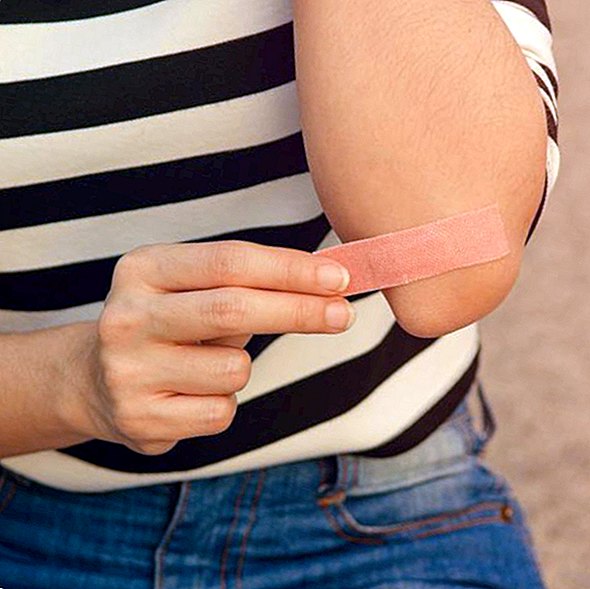Abrasion? how you treat it properly

What does a bruise look like?
An abrasion affects only the upper skin layer, This skin layer is, for. B. by a fall or other accident, and can (a little) bleed. Especially larger abrasions can hurt, as the nerve endings of the underlying skin layers are exposed.
A cut however, it reaches deeper into the skin. It is created, for example, by cutting with a knife, a pointed object or the edge of a sheet of paper.
Treat the abrasion properly:
- Clean the wound: Thoroughly clean under running, lukewarm water. Remember to wash your hands carefully to prevent infections.
- Remove coarse dirt: If there are foreign objects such as sand, small stones or similar on the surface, remove them carefully when cleaning.
- Disinfect: Now disinfect with a wound disinfectant.
- plaster: Finally, provide the abrasion with a plaster. For larger wounds, a larger wound dressing may be more helpful, such as a gauze or gauze compress.
A minor injury takes about two weeks to heal, Larger grazes usually take longer and may leave scars.
Then you should change the plaster
Plasters help to heal the wound. How often the patch should be changed depends on the wound, For superficial, minor injuries, the patch may remain sticky for a few days (two to three). Provided it stays clean and dry. Cuts can quickly collect bacteria, so it should be changed several times a day.
How do I behave when a bruise wets?
Maybe you are still there Foreign matter or dirt in the wound,this should then be cleaned quickly. But the cause of a weeping wound could also be one infection his. The body tries to flush the bacteria out of the body in this way. In this case, you use a wound dressing that can not stick to the wound, like a wound dressing sterile compress (from the pharmacy or drugstore). Soaked compresses must be changed - and please do not use again.
Which ointment do I take?
None at best. Ointment treatments are not recommended, as they may hinder wound healing. If ointment, you give it then only to the wound edges and not on the wound itself, otherwise the wound fluid can not drain.
Then you should go to the doctor
- At a severely bleeding or deep wound
- If z. B. broken glass stuck deep in the wound
- at lack of protection against tetanus
- The wound swells on
- The wound pound or redden yourself
- At a animal bite wound
Do you care about healthy skin? Then take a look here: We will not make these skincare mistakes anymore. If you are struggling with chronic diseases, our tips for sensitive skin or psoriasis will help you.
Videotipp: Small knots on the skin: So you get rid of them











